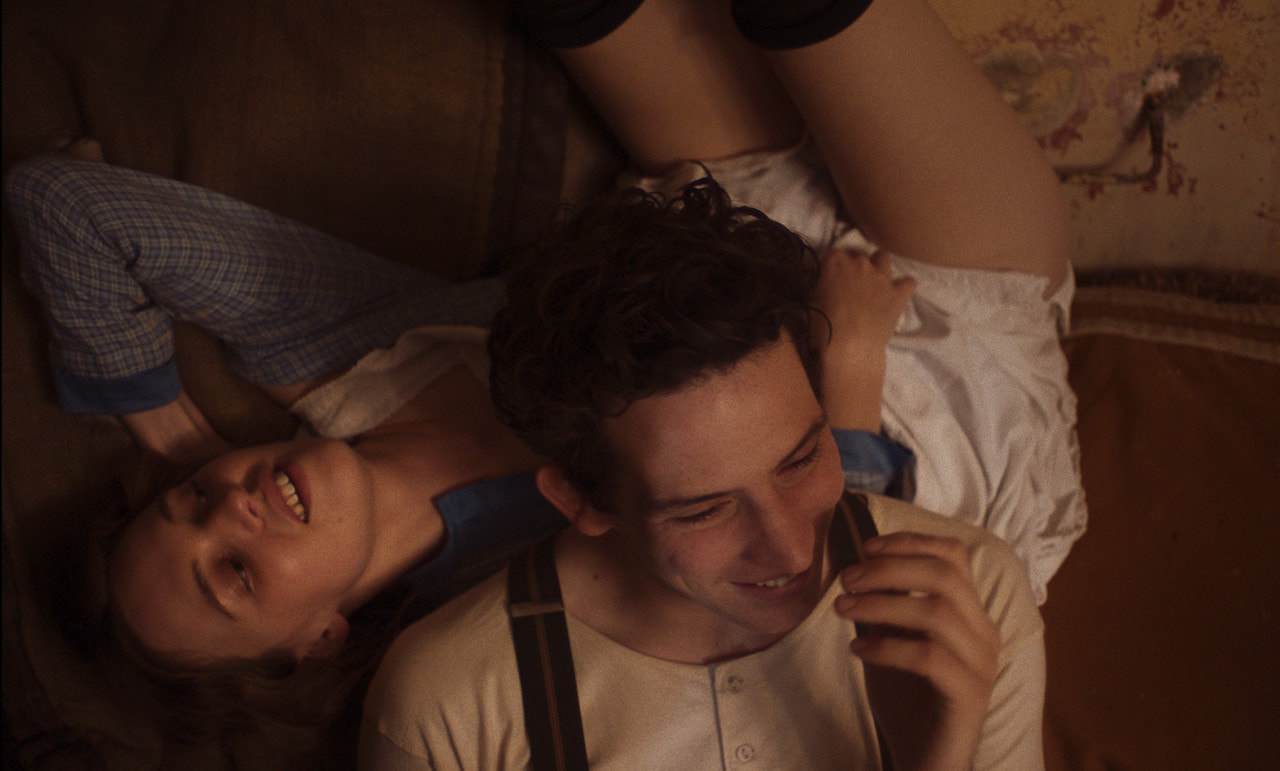Review:
"Mothering Sunday"

Release Date: April 8, 2022
Rating: R Running Time: 110 minutes Directed by Eva Husson, the class-conscious period romance Mothering Sunday offers no new insights into the socioeconomic barriers faced by star-crossed lovers in 1920s England. Instead, this measured adaptation of Graham Swift’s 2016 novel by Husson and screenwriter Alice Birch revels in the intense intimacy between Odessa Young’s spirited housemaid Jane Fairchild and Josh O'Connor’s wealthy law student Paul Sheringham. Jane may not work for Paul or his family, but theirs remains a forbidden love affair by virtue of the social hierarchy of the day. It also does not help that Paul is engaged to be married. Husson drops in on Jane and Paul on the pivotal Sunday afternoon they enjoy together in secret while Jane’s employees observe Mother’s Day festivities. When not making love, Jane and Paul engage in conversation both meaningful and frivolous. An air of heaviness hangs over their brief time together for reasons that Husson and Birch reveal slowly through an overuse of flashback and flashforwards. For this reason, this bittersweet moment in time grows in significance with each minute that passes. This is sustained by the undeniable tenderness that Young and O’Connor share when their lovers are at their most emotionally open and physically passionate. Husson always presents Jane and Paul as equals in love, never questioning their commitment to each other despite the latter’s engagement to a woman his social equal. As sensual as it is sexual, Mothering Sunday requires Young and O’Connor to spend much of their time together in a state of undressed. Husson employs their unabashed nakedness not just mine the comfort level that exists between Jane and Paul but as a metaphor for the fleeting liberation and soothing sincerity that this brief encounter provides them both as a couple and as individual forces to conform to society’s norms and expectations. This temporary sense of freedom lasts longer for Jane, as she roams around Paul’s vast country house as though it is the home she could share with him had her personal circumstances been different. Husson balances Jane’s lazy Sunday afternoon with exposition-heavy flashbacks that provide further insight into how Jane and Paul met but not much else. Mothering Sunday would not be hurt by their purging. The flash-forwards, though, prove as intriguing as they are vital to understanding how Jane finds her agency. They slowly and effectively reveal how Jane left behind her life as a servant as well as to compare and contrast Jane’s romance with Paul against her relationship with Freddy (Dexter Raggatt), a quiet and assuming man of modest means. Husson also offers a few flash-forwards of Jane in her old age, which feel somewhat tacked on but are welcome purely for the presence of Glenda Jackson, making her first appearance in a theatrical feature film in more than 30 years (Jackson served as a Member of Parliament from 1992 to 2015). All these decades later, Jackson’s Jane is still grappling with the events of that fateful Mother’s Day in 1924. Six years after the end of World War I, though, the Mother Day’s observed by Jane’s employers, Colin Firth’s Godfrey Niven and Olivia Colman’s Clarrie Niven, is less a celebration of motherhood than a remembrance of the thousands of young men lost in battle. Colman shrouds Clarrie in a fog of grieve as she cannot move past the death of her two sons; Firth maintains a stiff upper lip as his Godfrey presses forward with life for both himself and Clarrie. Mothering Day is not as interested in Jane’s relationship with the Nivens as it is with her romance with Paul. But Clarrie being in a perpetual state of mourning results in the most haunting exchange in Mother’s Day, one that draws its inspiration from Jane being orphaned as a child. “How very lucky, to be comprehensively bereaved at birth. You have absolutely nothing to lose, and you never shall. That is a gift, Jane, and you must learn to use it,” Clarrie says without a hint of self-awareness or regard for her own privilege. But Mothering Sunday knows that grief comes in many forms. And that grief can change a person. Sometimes for the better. Sometimes for the worst. For Jane, her grief offers her something she has been denied of her life simply because she was born into poverty and tragedy: the choice to take control of her destiny. Robert Sims Aired: April 7, 2022 Web site: https://www.sonyclassics.com/film/motheringsunday/ |
|
